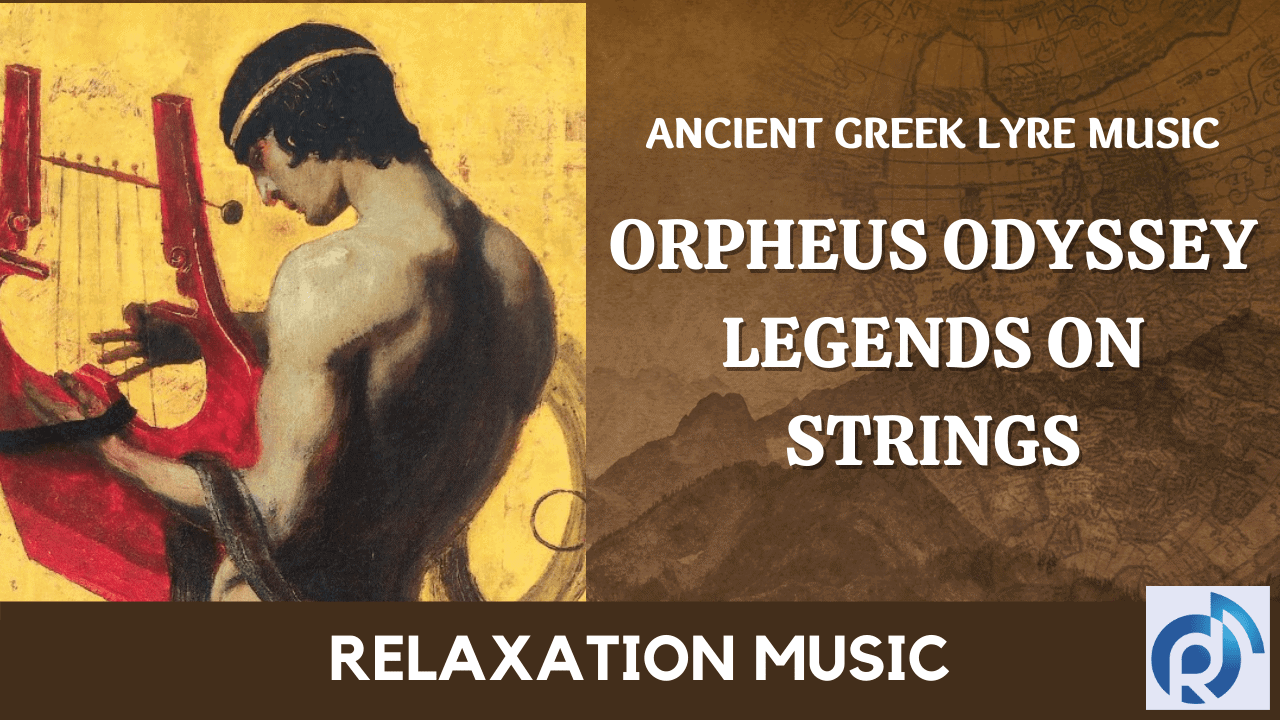Legends on Strings | Meditation & Relaxation Music

Orpheus Odyssey – Legends on Strings | Meditation & Relaxation Music
Music of Ancient Greece The music of ancient Greece was almost universally present in ancient Greek society, from marriages, funerals, and religious ceremonies to theater, folk music, and the ballad-like reciting of epic poetry. It thus played an integral role in the lives of ancient Greeks. There are significant fragments of actual Greek musical notation as well as many literary references to ancient Greek music, such that some things can be known or reasonably surmised about what the music sounded like, the general role of music in society, the economics of music, the importance of a professional caste of musicians, etc. Even archaeological remains reveal an abundance of depictions on ceramics, for example, of music being performed.
The word music comes from the Muses, the daughters of Zeus and patron goddesses of creative and intellectual endeavours.
Concerning the origin of music and musical instruments: the history of music in ancient Greece is so closely interwoven with Greek mythology and legend that it is often difficult to surmise what is historically true and what is myth. The music and music theory of ancient Greece laid the foundation for western music and western music theory, as it would go on to influence the ancient Romans, the early Christian church and the medieval composers. Specifically the teachings of the Pythagoreans, Ptolemy, Philodemus, Aristoxenus, Aristides, and Plato compile most of our understanding of ancient Greek music theory, musical systems, and musical ethos.
The study of music in ancient Greece was included in the curriculum of great philosophers, Pythagoras in particular believed that music was delegated to the same mathematical laws of harmony as the mechanics of the cosmos, evolving into an idea known as the music of the spheres. The Pythagoreans focused on the mathematics and the acoustical science of sound and music. They developed tuning systems and harmonic principles that focused on simple integers and ratios, laying a foundation for acoustic science; however, this was not the only school of thought in ancient Greece. Aristoxenus, who wrote a number of musicological treatises, for example, studied music with a more empirical tendency. Aristoxenus believed that intervals should be judged by ear instead of mathematical ratios, though Aristoxenus was influenced by Pythagoras and used mathematic terminology and measurements in his research.
Description Source: From Wikipedia, the free encyclopedia (https://en.wikipedia.org/wiki/Music_of_ancient_Greece)




